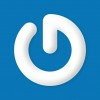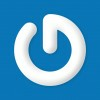
Both my grandparents migrated to the U.S. from India to practice medicine along with my three-year-old mother in the 1960s. My father emigrated from India after marrying Mother 27 years ago and settled in Tampa, FL. My mother has her own practice as an infectious disease specialist, and my father practices cardiology at the Veterans Affairs Hospital. Born in the United States and raised by Indian parents, I’ve grown up in a rich, multicultural medium. I guess you can call me a hybrid of sorts — then again, who in this richly diverse country of ours isn’t a beautiful blend of ethnic backgrounds? If you dig deep enough in your own family, you’re bound to stumble across some not-so-far ancestor from across the pond.
While the traditional face of America has always been an elegantly complex blend of different backgrounds, ethnicities and religions, I’ve sometimes felt there’s a tendency for people to look at me as being something foreign and alien. I have often felt the stares and glares of others, especially while flying. Is it the way I cover my head and my body that renders me so incomprehensible? People don’t look twice when a baseball cap, a yarmulke, a bandana or a hoodie walks by. I wonder.
I feel there is such tremendous good in approaching people with the multifaceted perspective that only we osteopaths are taught.
I am glad that has not been my experience at DMU. When I came to campus for my interview, I was tired, nervous and filled with doubts, but the climate at the school came as a pleasant surprise. The faculty engaged me and embraced who I was — a whole person with an intricate life story. I still fondly and clearly remember being interviewed by Dr. Tom Mueller and Dr. Jose Figueroa in the Student Education Center. In a mere couple of minutes, the interview went from being a dry, stressful fact-finding mission to an engaging, lively conversation. Here were two educated people, I thought to myself, who valued my experience in its entirety and genuinely took a keen interest in me, inquired into my life story and celebrated my differences. I felt supported in my lifelong goal to become a physician and fortunate to be doing so at one of the founding institutions of osteopathic medicine. DMU was a catch and I was sold.
Now, it would be great if the society outside could begin to inculcate the same understanding and respect for cultural diversity that DMU so actively fosters. However, I understand the media has rendered it so difficult for us to see one another holistically. And honestly, it’s hard to see beyond the violent images and negative perceptions that we are perpetually force-fed. Celebrating and embracing differences remain a challenge for people everywhere. Our busy-bee lifestyles don’t make it any easier to take a good, long look at one another. We’re all busy people, and learning about those who are somewhat different from ourselves takes time and ATP expenditure. However, we as a society can definitely be more perceptive and intelligent and less reactionary. So, case in point, rather than rushing through the headlines and hastily and erroneously formulating ideas on how my faith is characterized, we have to take the time to understand that the violent actions of a small minority cannot represent the teachings of any entire faith. We all have great minds that are just waiting to be completely switched on.
Speaking of great minds, we’re osteopathic students and, from day one, we’ve been taught to approach our patients in a comprehensive fashion. From our comprehensive history-taking to physical exams, we are trained to look beyond flesh and bone. We are told, ad nauseam, to look at our patients as spiritual, visceral, mindful beings. Frankly, I believe there’s no reason why we can’t apply the same holistic model outside of our profession. In fact, I feel there is such tremendous good in approaching people with the multifaceted perspective that only we osteopaths are taught.
I really appreciate it when I’m asked about my headscarf. When you ask me why I do what I do, the benefit is twofold in that you walk away with a more intelligent and holistic view of the world, and I walk away knowing that someone was as considerate and open enough to ask me why I dress the way I do—it’s a win-win situation.
I feel that a great place to begin nurturing this multifaceted perspective is through an active effort to understand and, furthermore, appreciate the diversity around us. The way I see it, this holistic, epically life-changing perspective can begin with something as small as learning about a friend’s religion, culture or language. We need to get curious, ask questions and jumpstart conversations that will lead us to one another and that will help us learn about each other. And please understand that it is most surely not rude or prying or nosy to be open and to sincerely inquire about why people do things differently. In fact, I really appreciate it when I’m asked about my headscarf. When you ask me why I do what I do, the benefit is twofold in that you walk away with a more intelligent and holistic view of the world, and I walk away knowing that someone was as considerate and open enough to ask me why I dress the way I do — it’s a win-win situation.
Speaking of doing the things I do, I choose to wear my scarf because of my belief in hijab, a concept that encompasses modesty as a manner in which a person speaks, acts and carries herself or himself. I find it to be actually liberating, because it requires others to see me for my intelligence and personality, rather than for how I look physically.
We Americans live in a nation founded on principles of religious freedom, tolerance and respect. We are fortunate enough to enjoy the freedom of speech. Rather than fearing and even despising our differences, we should take every effort to understand our differences. Coupling this unique freedom and set of values with our rich, holistic osteopathic heritage, we should start conversations, learn from one another and celebrate our differences. By the way, congratulations — you have just learned something new about the world around you.

